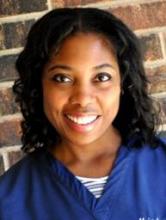When the Disney show "Doc McStuffins" premiered this year, Dr. Myiesha Taylor – and her 4-year-old daughter Hana – could not get enough. The show chronicles the life of 6-year-old African American Dottie "Doc" McStuffins, who cures the ouchies, oopsies, and uh-ohs that plague her stuffed animal friends. Dottie McStuffins wants to be a doctor just like her mother. Similarly, Dr. Taylor remembers using play medical equipment and medical records to treat her own stuffed companions.
As one of the first Disney shows to feature an African American female central character, "Doc McStuffins" sends a much-needed message to minority youth, who traditionally lack strong minority role models, said Dr. Taylor, an emergency physician in Fort Worth, Tex.
Children should be taught from an early age that they can do whatever they want to do if they work hard enough, Dr. Taylor said in an interview. "Then, when they’re in sixth grade, they’re already on a trajectory to greatness and they’re not aspiring necessarily to be a rock star [or] an athlete. They know that they can find success if they work hard in this intellectual field of medicine, as opposed to a performing field," she said.
To show her appreciation, Dr. Taylor created a collage of the image of Doc McStuffins surrounded by more than 130 photographs of African American female physicians across the country. She said her collage was her way of thanking Disney for shining a light on the diversity in America.
"In 20 or 30 years, you’ll have a different look in America, so you need to start addressing those issues now, and the way you address it is not intervention in high school. That’s too late," she said.
Dr. Taylor remembers feeling called to medicine at a young age, inspired by her mother and grandmother, who were both nurses. But after her father’s tragic death during the Los Angeles riots in 1992, her calling to emergency medicine became clear. Dwight Taylor died at age 42, just hours after he was transported to an emergency department that did not have a trauma center. Dr. Taylor, then a senior in high school, remembers wanting to make a difference for people in their most desperate hours.
"As I continued in my training, I said, ‘You know, I think that I want to be the type of doctor that can make an immediate change,’ " she recalled. "Motivated by what happened to my father, it just felt like the natural thing for me to go into."
While the kind of family tragedy that inspired Dr. Taylor is thankfully rare, she emphasized that if provided with inspiration from the adults around them, minority children can be drawn to emergency medicine and other medical careers. She added that as the minority population in the United States grows, it’s more important than ever that the physician population reflect the image of the people they serve. And emergency physicians should work to make that a reality in their field.
"Our patients don’t look like our group, so we need to reach out," she said. "I know you can’t just go and pick a doctor off a tree. So, that means that my colleagues need to recognize that it’s important for more students to be ready for medical school ... and then once they’re in medical school, you want to try to recruit them into your specialty so that they don’t all end up in a specialty that is less competitive, for instance, because they just have so many spots."
Embracing diversity is not just about race, but gender as well, Dr. Taylor added. Even a pretend doctor like Doc McStuffins can help children understand that a black woman can be an accomplished physician, she said.
"You need that leading lady to show she’s in charge, she’s the doctor, so that when I walk in to the patients’ rooms, they’re not thinking that it’s weird and I must be the nurse. Or the medical student that’s with me must be the doctor because he’s a man. These types of shows dispel some of those stereotypes and make it easier for all female physicians and people of color."


